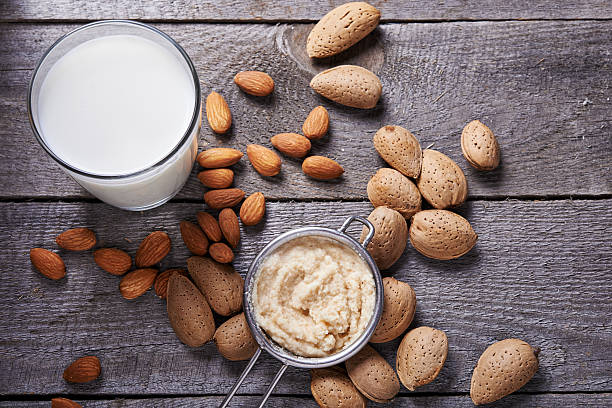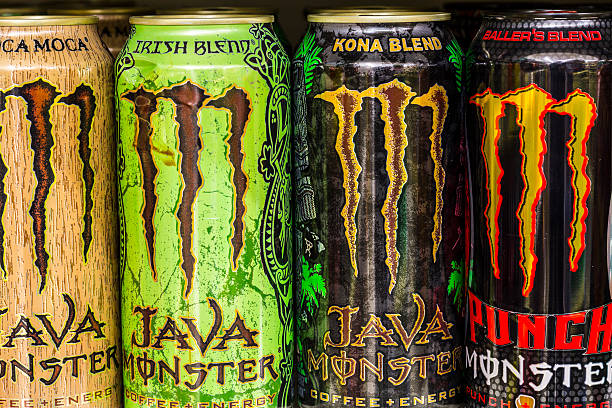How Is Almond Milk Made? | Learn About Almond Milk
In the quest for healthier, plant-based alternatives to dairy, almond milk has surged in popularity, emerging as a staple in coffee shops, kitchens, and smoothie bowls around the globe. But how exactly is this nutty beverage transformed from a handful of almonds into the creamy, versatile milk alternative that so many have come to love? The process, while seemingly straightforward, involves a fascinating interplay of traditional techniques and modern technology, underscoring the ingenuity of food science. This article delves into the art and science behind almond milk production, revealing the meticulous steps—from the selection of almonds to the final packaging—that ensure every carton delivers not just on taste but on nutritional value too. As we explore the intricacies of this process, we invite readers to gain a deeper appreciation for the journey of almond milk, from orchard to glass. Whether you’re a dedicated vegan, lactose intolerant, or simply curious about plant-based diets, understanding how almond milk is made will enrich your dietary choices and may even inspire you to try making your own. So, join us as we uncover the secrets behind the creation of almond milk, a testament to human innovation in pursuit of health and sustainability.
Contents
Understanding Almond Milk

Before we get into the how-to, let’s first understand what almond milk is all about.
The Basics of Almond Milk
Almond milk is made by blending almonds with water then straining out the solids. The leftover liquid is your homemade almond milk. It retains the nutty flavor of almonds while taking on a creamy, milk-like consistency.
The basic process involves:
- Soaking raw almonds to soften
- Blending soaked almonds with fresh water
- Straining through cheesecloth, nut milk bag, or fine mesh sieve
- Voila. DIY almond milk
It only takes about 10 minutes of active prep time.
Nutritional Profile and Health Benefits
One reason almond milk is so popular is its nutritional makeup:
- Low in calories and fat: Only 60 calories and 2.5g fat per cup unsweetened.
- Heart healthy fats: Primary fats are monounsaturated, linked to lower cholesterol.
- Vitamins and minerals: Contains calcium, vitamin E, phosphorus, and potassium.
- Bone health: Has more calcium than dairy milk. Excellent for preventing osteoporosis.
- Blood sugar control: Low glycemic index helps regulate blood sugar levels.
- Skin health: Vitamin E protects skin from sun damage and inflammation.
Compared to cow’s milk, almond milk is significantly lower in calories, saturated fat, protein and sugar. For those monitoring calories or fat intake, it is an excellent substitution. It also contains beneficial vitamins and minerals like calcium and vitamin E.
Almond Milk and Health Considerations
Despite its many positives, there are some potential downsides to consider:
- Not suitable for nut allergies: Almond milk can trigger tree nut allergies. Always avoid if you have an allergy.
- Hormone concerns: Some fear plant-based estrogens in soy/almond milk could disrupt hormones. But studies show this is likely unwarranted.
- Bone health: Almond milk has less protein and calcium than dairy milk. May not be ideal for growing children.
- Nutritional profile: Not a good milk replacement for those seeking higher protein. Has only 1g protein per cup.
Overall, almond milk is safe for most people. But those with existing gastrointestinal issues or nut allergies should exercise caution or avoid altogether.
Environmental Impact and Ethical Considerations
There are some environmental and ethical concerns to consider regarding almonds:
- Water usage: Almond trees require more water than other crops. This has led to shortages in drought-prone California.
- Pesticides: Conventional almonds may be treated with high levels of pesticides. Choosing organic helps reduce impact.
- Sustainability: Almond crops deplete regional bee populations that are needed for pollination. Responsible farming practices are a must.
- Transportation: Most US almonds are shipped from California, increasing carbon footprint. Buying local is better.
- Labor practices: Some almond farms have come under scrutiny for labor violations. Seek out ethical suppliers.
While not perfect, careful sourcing of organic and locally grown almonds can help reduce environmental impact. Seek out responsible vendors for the most eco-friendly almond milk.
Preparing for Homemade Almond Milk
Alright, let’s get down to making your own almond milk. First, we need to go over the essential ingredients and equipment.
Choosing Your Ingredients
To make basic almond milk, you only need two ingredients:
Almonds – Go raw and organic. Unpasteurized retains more nutrients. Choose a sustainable, ethical source.
Water – Use filtered water for purest flavor. Can use coconut water for added nutrients.
Optional flavorings: Vanilla, cinnamon, cocoa powder, sweeteners like honey or maple syrup, sea salt. Get creative.
For maximum creaminess, many recipes also add dates to homemade almond milk. Their natural sweetness helps offset almond’s bitterness.
Equipment: Blender vs. Food Processor
You can make almond milk using either a high-speed blender or a food processor:
- Blender – Creates smoothest texture. Best for adding flavorings. Allows straining while running.
- Food processor – Usually a quicker process. Less cleanup. Cheaper models available.
Powerful blenders like Vitamix or Blendtec work great, but any countertop blender will do. For food processors, look for at least 7 to 8 cups capacity.
Soaking Almonds: Techniques and Tips
Before blending, raw almonds need to be soaked to soften them for milk extraction.
- Soak for 8 to 12 hours or up to overnight.
- Longer soaking yields more milk, but don’t go over 24 hours.
- Rinse occasionally while soaking to prevent fermentation.
- Water temperature for soaking doesn’t matter. Room temp or warm both work.
- No need to peel almond skins after soaking. The straining will remove any residue.
Soak almonds in ample water in a bowl or container covered with a towel. Give them a good rinse now and then while soaking. After time is up, drain and rinse thoroughly. The almonds are now ready to become almond milk.
The Making of Almond Milk
Now for the fun part – let’s actually turn those soaked almonds into homemade almond milk.
Step-by-Step Instructions
Here is the process from start to finish:
- Soak almonds for 8 to 24 hours until softened.
- Drain and rinse almonds well. Discard soaking water.
- Add almonds and fresh filtered water to blender or food processor. Use a 3:1 water to almond ratio.
- Blend on high speed for 1 to 2 minutes until very smooth.
- Strain using cheesecloth, nut milk bag, or fine mesh sieve, squeezing out liquid.
- Store homemade almond milk in airtight container in the fridge.
That’s it. For precise measurements and ratios, follow your selected almond milk recipe. But these basic steps work for any homemade almond milk.
Customizing Your Almond Milk
One of the joys of DIY almond milk is customizing it to your tastes:
- Unsweetened works great for savory cooking. Avoid added sugars.
- Sweeten with honey, dates, maple syrup, or sugar. Add to taste after straining.
- Flavored with vanilla, cocoa powder, cinnamon, coffee, berries, etc.
- Creamy by adding a tablespoon of coconut oil or cashews.
- Smoothies use less water for thicker, milkshake-like texture.
- Fortified with extra calcium, vitamin D, protein powder, etc.
Flavor, thickness, and nutrition can all be adjusted for the perfect homemade almond milk.
Troubleshooting Common Mistakes
Home almond milk is simple, but here are some troubleshooting tips:
- Gritty texture – Blend longer or use a more powerful blender
- Bitter taste – Soak almonds longer, use filtered water
- Low yield – Add more almonds and less water
- Quick spoilage – Use clean equipment and store properly
- Curdling in coffee – Some separation is normal due to acidity
- Foam when blending – Add water slowly to prevent air getting whipped in
With practice, you’ll learn how to adjust for smooth, tasty almond milk every time.
Nutritional Enhancement
To make your DIY almond milk even more nutritious, consider adding:
- Protein powder – Whey or plant-based powder for a protein boost
- Calcium – Calcium carbonate provides 30-40% daily calcium
- Vitamin D – Crucial for calcium absorption and immune health
- Probiotics – For gut health. Add liquid probiotic cultures.
- Omega-3s – Chia or flax seeds provide anti-inflammatory benefits
Fortifying with extras nutrients transforms your homemade almond milk into a true superfood drink.
Beyond the Milk
Now that you’ve made your first batch, let’s look at storage, uses for the pulp, and recipe ideas.
Storing Your Almond Milk
Proper storage is essential for fresh, safe homemade almond milk:
- Refrigerate in airtight container immediately after making
- Keeps 3-4 days in the fridge
- Separated milk can be shaken or re-blended
- Freeze in ice cube trays or bags for up to 3 months
- Frozen milk may thaw thinner or curdle – shake before using
Follow basic food safety practices and your almond milk will stay fresh for use all week.
Utilizing Almond Pulp
Don’t throw out that almond pulp left from straining. Upcycle it into:
- Nutritious almond flour – Spread pulp on a baking sheet and dry into flour
- Skin-softening face scrub – Mix pulp with honey or oil and gently exfoliate
- Fiber-rich additions – Add to oatmeal, yogurt, baked goods for extra nutrition
- Plant fertilizer – Dry thoroughly and till into garden beds
With a bit of creativity, you can utilize all the leftovers from your DIY almond milk.
Recipes Featuring Homemade Almond Milk
Homemade almond milk adds a delicious nutty depth to both sweet and savory recipes:
- Smoothies
- Overnight oats
- Chia pudding
- Curries
- Soups
- Oven pancakes
- French toast
- Green drinks
Get creative with homemade almond milk as an ingredient in all types of dishes beyond just drinking it.
Advanced Topics

Let’s wrap up with some bonus info for the aspiring almond milk expert.
Economic Analysis: Homemade vs. Store-Bought
Depending on your resources, homemade almond milk can provide significant savings over store-bought:
- Homemade costs $0.20-$0.60 per cup depending on ingredients used
- Store-bought costs $0.80-$3.00 per cup for leading brands
- Organic almonds can be pricier but offset by higher yields
- Time investment of 10-15 minutes per batch
While not hugely time consuming, making your own almond milk can potentially save you 50-75% over buying it.
Sustainability Deep Dive
Let’s take a deeper look at the environmental impact of almond milk:
- Almond trees are heavy water users, needing 4-6 gallons per nut produced
- In California it takes approximately 1 gallon of water to grow 1 almond
- 95% of US almonds come from California, putting strain on water resources
- Almond crops are reliant on commercial honeybees for pollination
- Organic and Australian/European almonds may have lower environmental impacts
Consider sustainability before choosing your almonds. And be conservative with water usage if making your own.
Equipment Care and Hygiene
Like any food, proper sanitization prevents contamination or spoilage:
- Wash blender/strainers thoroughly after each use with soap and hot water
- Avoid any contamination from utensils, hands, or surfaces
- Store homemade almond milk in clean containers, avoiding contact with containers’ interior
- Refrigerate immediately since homemade milk lacks preservatives
- Discard if any mold or off odors develop
With good care and hygiene, your equipment will keep producing healthy homemade almond milk.
Conclusion
Hopefully this guide has shown that making your own almond milk is simple, tasty, and customizable. Not only will you save money, but you’ll avoid preservatives and excess sugars found in store-bought brands. With a few minutes hands-on prep time, you can have fresh, nutritious almond milk ready for your morning latte, smoothies, and other favorite recipes. Soak those almonds tonight and start enjoying the benefits of homemade almond milk tomorrow.
https://bamboowokmanvel.com/food-drink/beverages/
Harmony Saunders is the CEO and founder of Bamboo Wok, a family-owned and operated Chinese restaurant that has been serving the Manvel, Rosharon, and Alvin communities for more than nine years. Our delicious dishes are made from scratch with the best ingredients, vegetables are fresh cut daily in our kitchen, and poultry is delivered every two days.
So whether you’re craving Chinese food for the family or need catering for your next event, please give us a try! We know you won’t be disappointed with our fresh, authentic Asian fare.



















